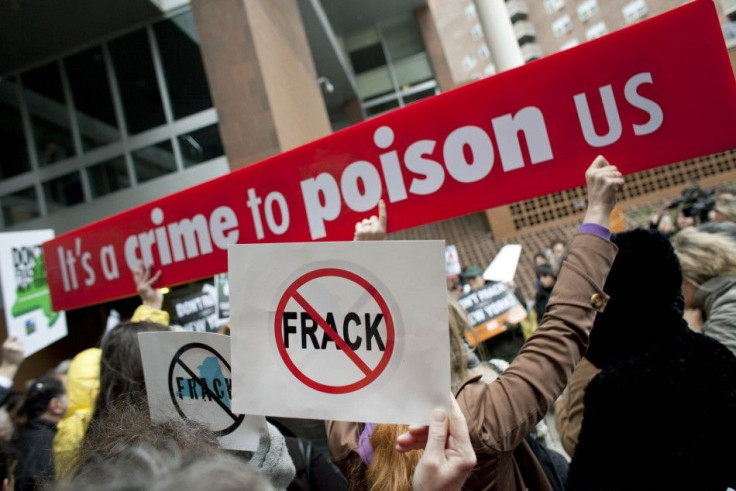New York Town Gets Court OK to Ban Hydraulic Fracturing

A New York State court has turned back a natural gas company's bid to stop towns from banning horizontal hydraulic fracturing, potentially boosting local opposition to the controversial gas drilling procedure .
In a case that began in August 2011, the supervisor of the Town of Dryden, in upstate Tompkins County, N.Y., attempted to use the local zoning law to prohibit oil and natural gas companies from drilling within the town. Dryden has drawn interest from companies that do hydraulic fracturing, or fracking.
Anschutz Exploration, a Denver-based driller controlled by billionaire Philip Anschutz, sued on the grounds that only state laws can regulate the oil and gas industries. Last September, the company took its case to the Syracuse branch of the state's Supreme Court.
On Tuesday, a panel of the court ruled in favor of the town.
Anschutz has 22,200 acres of land in Dryden that it can now no longer develop, said the New York Times, and company attorney Thomas West is cited suggesting he could pursue a claim in which Aschutz will try to recoup the costs of leasing acreages from Dryden.
The case is the first, the New York Times reported, in which local government is allowed to control the energy industry.
New York law stipulates that local municipalities can't regulate the oil and natural gas industry -- including how companies like Anschutz conduct their business. Until Tuesday's ruling, a town's land-use ordinances were thought by oil and natural gas companies to be subordinated by state law.
What this says is the Oil Gas and Solution Mining Law does not trump zoning laws, said the town's attorney, Mahlon Perkins.
Perkins said he doesn't think the court ruling will fail on appeal and that claims made by Anschutz to recoup its invest in an inherently risky business would be frivolous.
By upholding Dryden's fracking ban, Judge [Phillip] Rumsey has brought a renewed sense of hope to the many cities and towns concerned with fracking, Katherine Nadeau, Water and Natural Resources program director for the Environmental Advocates of New York, said in a statement.
New York's Department of Environmental Conservation is actively reviewing thousands of comments from proposed new regulations as well as findings from fracking-impact studies. The agency could come up with a final ruling on hydraulic fracturing by year's end.
Hydraulic fracturing is a process that involved blasting rocks underground with water, sand and chemicals to unlock gas inside. It has opened up thousands of square miles in the Northeast to potential gas mining over the Marcellus and Utica Shale formations.
Areas with shale natural gas have experienced an energy boom in recent years. If New York officially gives the industry the green light, local economies could stand to generate $11 billion by 2020, according to some industry estimates.
The Marcellus Shale formation, which stretches from upstate New York through Pennsylvania, Ohio, Virginia, West Virginia and Maryland, holds an estimated 84 trillion cubic feet of natural gas that has yet to be discovered, the U.S. Geological Survey says.
Calls to Anschutz Exploration weren't returned.
© Copyright IBTimes 2025. All rights reserved.




















